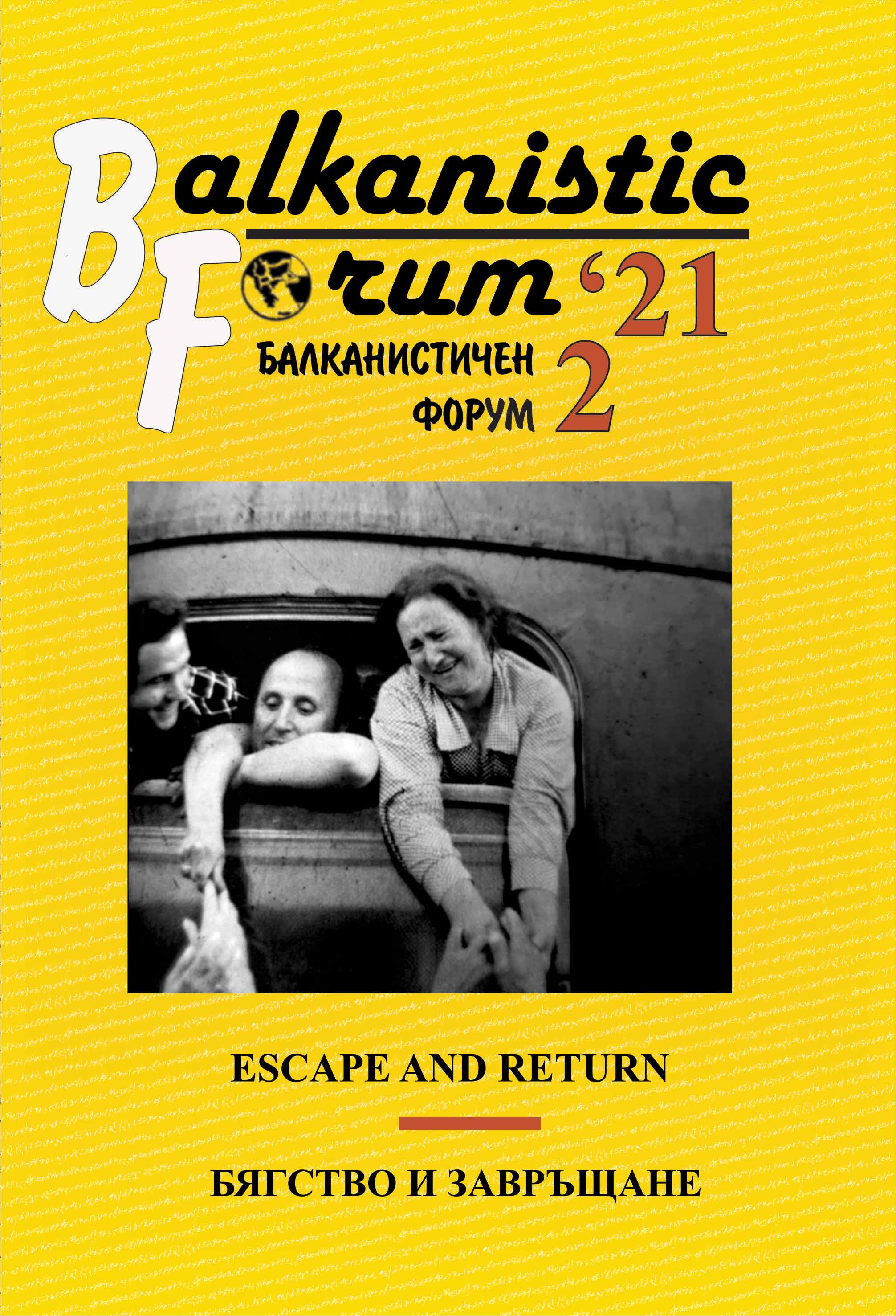Higher Education Received by Young Russian Emigrants in European Countries in the 1920s-1930s and Problems of further Employment (Based on Materials of Czechoslovakia and France)
Higher Education Received by Young Russian Emigrants in European Countries in the 1920s-1930s and Problems of further Employment (Based on Materials of Czechoslovakia and France)
Author(s): Liudmila V. Klimovich, Leonid Aleksandrovich ShaipakSubject(s): History, Social history, Recent History (1900 till today)
Published by: ЮГОЗАПАДЕН УНИВЕРСИТЕТ »НЕОФИТ РИЛСКИ«
Keywords: Russian diaspora; Russian emigration; adaptation; students; higher education; em-ployment; Czechoslovakia; France
Summary/Abstract: The article presents the process of getting higher education by students, emigrants from Russia. Special attention is paid to the organizations that rendered assistance in the admission and training of students at the universities of Czechoslovakia and France. The Committee on Education for Russian students in Czechoslovakia (CERSC) and the Committee on Higher Education for Russian youth abroad ("Fedorov Committee") contributed to the organization of student education by providing scholarships, by exempting them from paying tuition fees, and providing a dorm. The activities of these organizations were carried out at the expense of the governments of the host countries and benefactors.The article notes that getting a European education contributed to the success-ful adaptation of Russian youth in a foreign society with different culture, which gave them an opportunity to find a job. The analysis of the documents showed the problems that graduates-emigrants of European universities encountered, in Czechoslovakia in particular. The low demand for personnel of intellectual labor led to the fact that many had to get a craft profession after graduating from a university. The Association of Russian Graduates of Higher Educational Institutions in the Czech Republic (AR-GHEI) arranged such short-term courses. Owing to the assistance of this organization, young emigrants were able to get jobs in other countries.The article is based on the analysis of documents from the National Archives of the Czech Republic (Czechia) and the Library-Fund "Russian Diaspora" (Russia).The article presents the process of getting higher education by students, emigrants from Russia. Special attention is paid to the organizations that rendered assistance in the admission and training of students at the universities of Czechoslovakia and France. The Committee on Education for Russian students in Czechoslovakia (CERSC) and the Committee on Higher Education for Russian youth abroad ("Fedorov Committee") contributed to the organization of student education by providing scholarships, by exempting them from paying tuition fees, and providing a dorm. The activities of these organizations were carried out at the expense of the governments of the host countries and benefactors. The article notes that getting a European education contributed to the successful adaptation of Russian youth in a foreign society with different culture, which gave them an opportunity to find a job. The analysis of the documents showed the problems that graduates-emigrants of European universities encountered, in Czechoslovakia in particular. The low demand for personnel of intellectual labor led to the fact that many had to get a craft profession after graduating from a university. The Association of Russian Graduates of Higher Educational Institutions in the Czech Republic (AR-GHEI) arranged such short-term courses. Owing to the assistance of this organization, young emigrants were able to get jobs in other countries. The article is based on the analysis of documents from the National Archives of the Czech Republic (Czechia) and the Library-Fund "Russian Diaspora" (Russia).
Journal: Балканистичен Форум
- Issue Year: 30/2021
- Issue No: 2
- Page Range: 59-73
- Page Count: 15
- Language: English
- Content File-PDF

